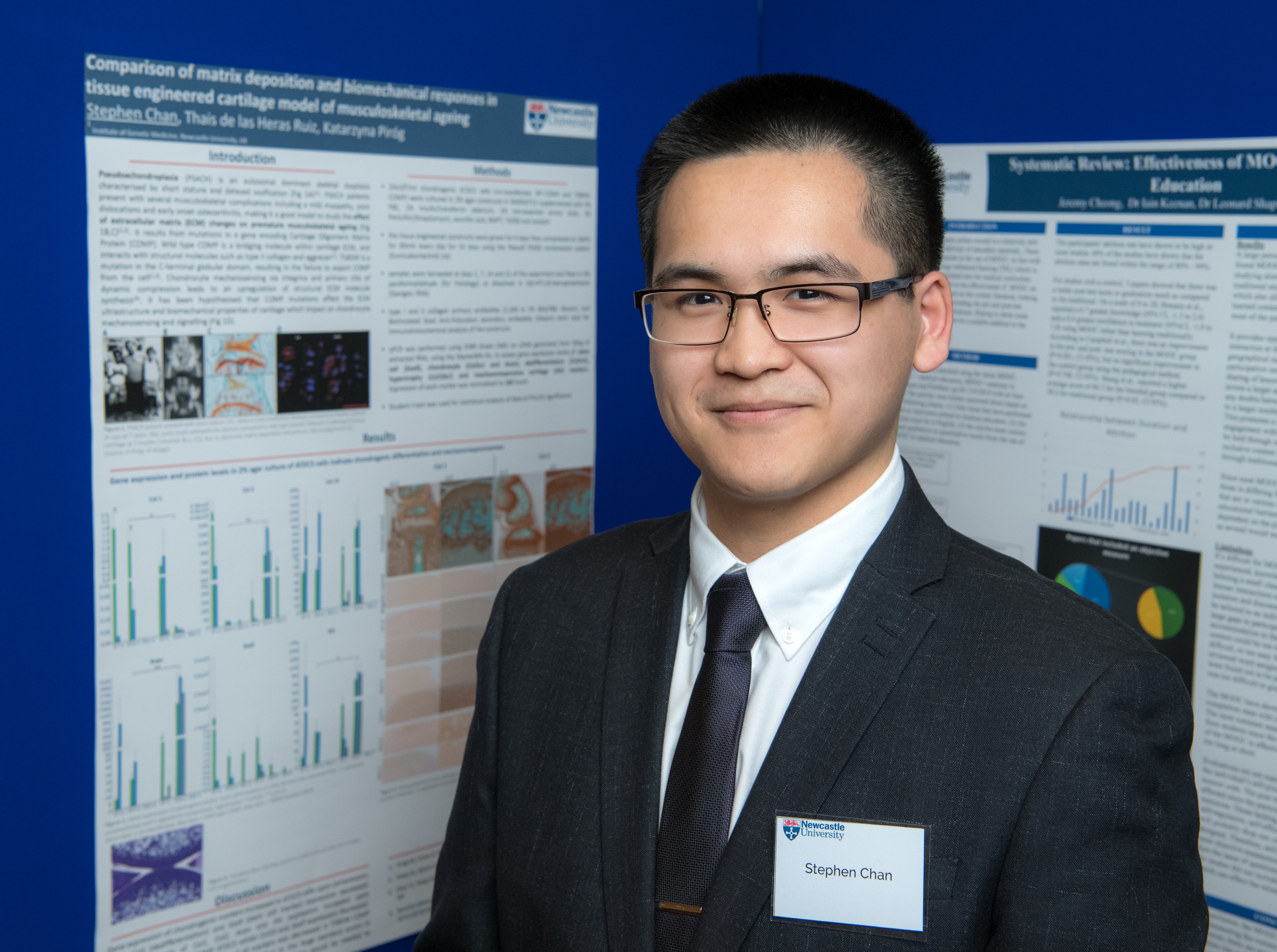2019 participants
 Stephen Chan
Stephen Chan
- BSc (Hons) Biomedical Sciences
- Comparison of matrix deposition and biomechanical responses in tissue engineered cartilage model of musculoskeletal ageing
Pseudoachondroplasia (PSACH) is characterised by short stature, joint instability and early onset osteoarthritis, and results from mutations in cartilage oligomeric matrix protein (COMP). PSACH cell and animal lines are often used to model of premature musculoskeletal ageing.
2% agar constructs seeded with ATDC5 chondrogenic cells transfected with wild type and T585M mutant COMP-GFP were cultured in chondrogenic medium supplemented with ITS, ascorbic acid, BMP7 and TGFβ, and compressed for 2 weeks for 30min/day at 10kPa 0.33Hz to mimic physiological compression of cartilage.
Gene expression of chondrogenic markers (Col2, Col10, Acan and Ihh) increased in ATDC5 cells upon compression, whilst Col1 (dedifferentiation) and Sox9 (stem cell marker) expression decreased. Interestingly, levels of Col1, Col2, Acan and Ihh expression increased upon compression of wild type COMP-GFP ATDC5 whilst Col10 and Sox9 expression decreased. Compared with wild type, expression of all markers was decreased in T585M COMP-GFP constructs upon compression, indicating cell stress.
Funding source: Newcastle University
Project supervisor: Dr Katarzyna Pirog
